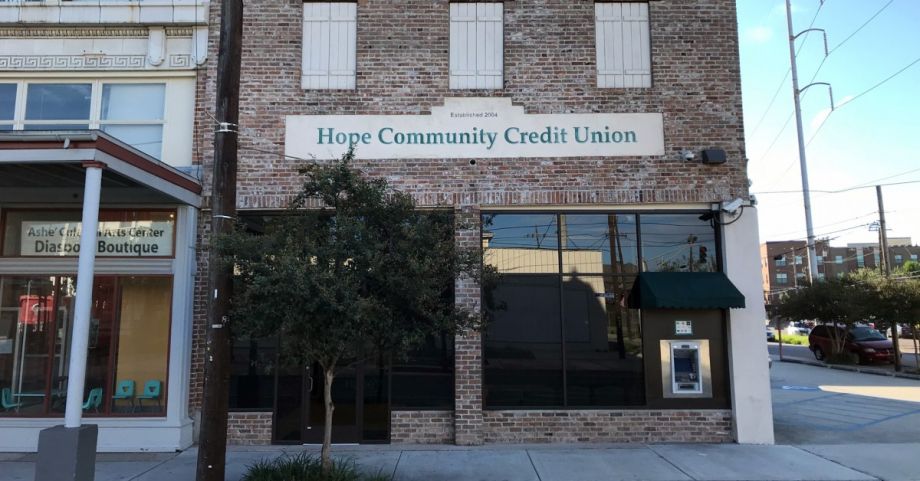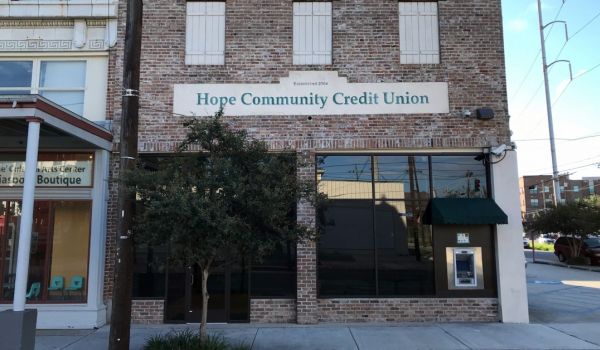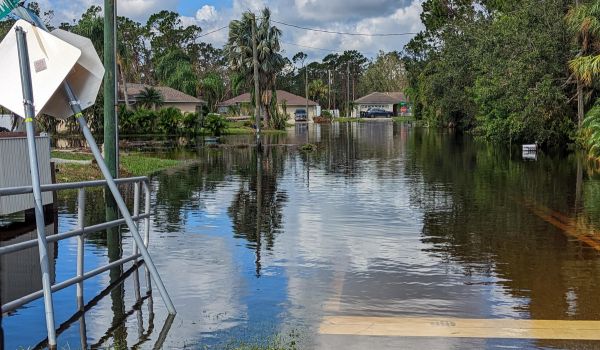According to a new report released by the Federal Reserve Bank of New York, Community Development Financial Institutions (CDFIs) have grown rapidly in recent years. But as more money flows through the industry, it prompts the question if that growth will translate to support for the communities most in need of CDFIs’ services: minority and low-income communities.
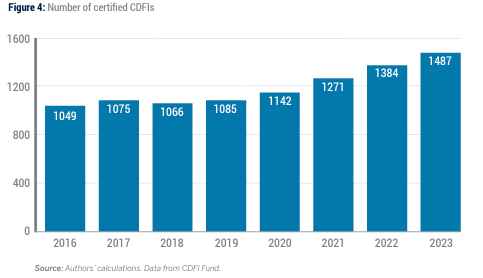
In theory, the growth of the CDFI industry should serve low- and moderate-income communities. The 1994 Riegle Act, which was created to support CDFIs through the CDFI fund, was focused on addressing challenges faced by Native American communities driven by inequity. As a result, CDFIs were designed to address the needs of low- and moderate-income communities. This originating purpose means that it’s worthwhile to look at the rapid growth of the CDFI industry — and ensure that the industry’s goal remains countering inequity.
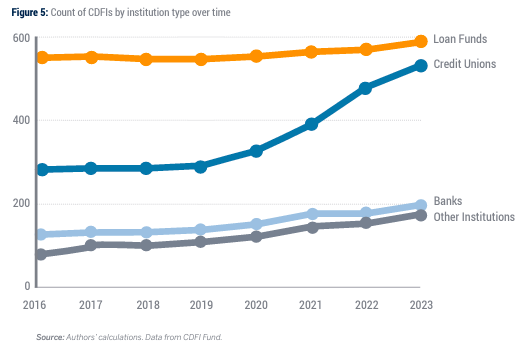
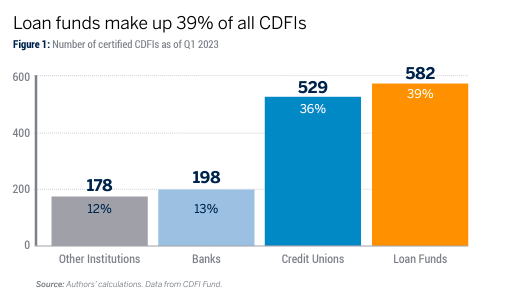
The growth of credit unions likely reflects the success of particular organizations that promote CDFIs. Eighty-eight of 239 total credit unions are based in Puerto Rico, which may in large part be attributed to Inclusiv’s Puerto Rico CDFI Initiative’s support converting the island’s existing credit unions, known locally as cooperativas, into certified CDFIs. Many of the members of this network belong to low-income communities, making Puerto Rico a successful application of the CDFI credit union as a regional concept.
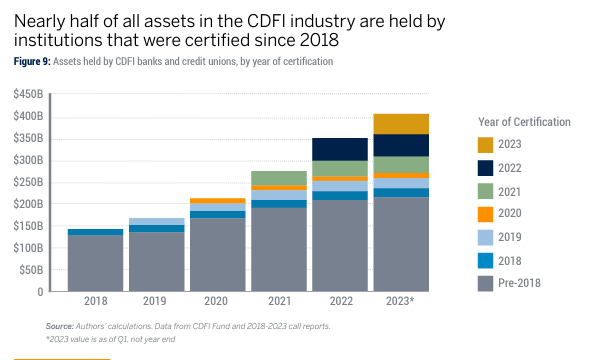
It’s also important to note that this growth is concentrated in large credit unions. Suncoast Credit Union saw an increase of $7.6 billion and 82%, while First Bank achieved an increase of more than $5 billion and 172%. Institutions on average grew by $3.6 billion and 93%.
As the flow of money has increased in the industry, the study poses a question: Does the industry continue to support the low- and moderate-income communities that they were formed to support? Going forward, the New York Fed’s Community Development team plans to look more closely at the loans provided and sold by CDFIs, to understand how they’ve managed this rapid growth in size in relationship to successfully supporting their original mission.
From the report: “This analysis is the first step in understanding trends in the CDFI industry, including its size and the volume of loan originations, as well as the challenges faced by CDFIs as they serve their target markets and borrowers. In future work, the New York Fed’s Community Development team will examine the origination and sale of various types of loans originated by CDFIs, including residential mortgages, small business loans, commercial real estate and multifamily loans, and secured and unsecured consumer loans.”
This story is part of our series, CDFI Futures, which explores the community development finance industry through the lenses of equity, public policy and inclusive community development. The series is generously supported by Partners for the Common Good. Sign up for PCG’s CapNexus newsletter at capnexus.org. 
James Finley is a writer living in the D.C. area.

